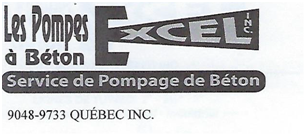Maintenance
CONCRETE MAINENTANCE
CONCRETE NEVER LOOKED SO GOOD!
HOW ICE MELTERS AFFECT CONCRETE:
Most concrete damage is a result of the natural effects of freeze-thaw cycles, not a chemical attack by an ice melter. Moisture seeps into the surface pores and cracks in the concrete, and as it changes to ice, expands and puts pressure on surrounding surfaces. Stress on weaker areas in the concrete may result in cracking or surface deterioration. Using an ice melter increases the number of freeze-thaw cycles, and the potential for damage to concrete. However, the hazards and risk of injury associated with slippery surfaces must be weighed against this. Properly air-entrained concrete designed for cold weather climates (as recommended by Avco Inc.) has a network of tiny air pockets that allow it to accommodate freeze-thaw cycles. Poor quality surfaces may not withstand the stress associated with these cycles.
Ice melters is NOT recommended on the following surfaces; concrete that is less than 1 year old (BALCONY, STEPS, OR WALKWAYS), stone or concrete surfaces that are chipped, cracked, spalled or have exposed aggregate.
Here are some recommendations for reducing the risk of damage to concrete:
- Apply ice melter at recommended rates
- Use a push type or hand held ice melter spreader An ice melter with an environmentally inert dye marker can make it easier to prevent over application
- Use an ice melter with extended refreezing protection
- Remove slush and water before refreezing occurs
- Avoid using ice melters on non air-entrained concrete or other vulnerable surfaces
- Apply a commercial strength sealer when dry
How do I care for my concrete in Winter?
You can help maintain concrete by shovelling the snow from your balcony, steps, walkway, and driveway. By keeping the snow cleared, it is less chance that it will compact down freezing into the surface and accelerate the freeze/that cycle. The less number of times that water enters concrete and freezes, the less likely that it will become damaged. Use a plastic shovel instead of a metal one. Bent/sharp corners of a worn metal shovel can damage the surface of certain types of concrete.
Is it okay to use salt as a de-icer?
The short answer is NO. Salt is very corrosive to concrete and will eventually, if not immediately, cause damage to many types of concrete.
What about "Environmentally Friendly" de-icers?
There are four primary types of de-icing salts that all have different characteristics and are each designed to work in certain temperature ranges.
1. The most common de-icing salt is regular rock salt or sodium chloride. It is widely available and can melt snow and ice until the temperature drops below -8 C. Below these temperatures the rock salt stops melting snow and ice. Rock salt also releases the highest amount of chloride ions when it dissolves. Chloride can pollute water ways, rivers, lakes, and can also cause metal to corrode.
2. Calcium Chloride is another de-icing salt that is commonly marketed in tiny white pellets. It can melt snow and ice well below -17 C. It can cause skin irritation if your hands are moist when using it and will chemically attack concrete.
3. Potassium Chloride is another de-icing salt that is now available. It is not a skin irritant and will not harm vegetation but will only melt ice and snow when temperature is above -9 C.
4. The newest de-icing salt is Magnesium Chloride. It will continue to melt snow and ice well below -25C. This salt releases about 40 percent less chloride into the environment than either rock salt or Calcium Chloride. It can be less damaging to concrete surfaces of unknown or questionable quality.
The common property of all these different types of de-icers is that they all seem to have the potential to damage concrete and some are harmful to the environment. Another potential problem with using a de-icer of any kind is the damage caused by increased freeze/that cycles. For example, when a product rated for -9 C melts snow and ice, it will enter the pores of the concrete as salty water. When the temperature drops below the rated temperature for that particular salt it can refreeze and expand in the pores of the concrete causing damage. Many types of salt de-icers are marketed as "Environmentally Friendly". Be careful when using these products and read the directions carefully.
**One alternative to de-icers is to spread sand or fine gravel on the surface. If there is a safety concern and you must use a de-icer, remove the ice and residue with a shovel or broom immediately after the product has melted the snow and ice.**
Alternatively if you find yourself in the situation where you must consistently use a de-icer of some type, you will want to first protect the surface(s) with a salt resistant sealer. There are many sealants available for all surfaces that will protect from the effects of caustic substances such as salt. There are also sealants with grip additive built into them that can increase traction. Although it will only help reduce the potential damage to the surface.
5 Tips for Winter Care
1. Snow Plowing – Paver Driveway / Exposed Aggregate / Concrete Balcony and Stairs
Aggressive plowing using a metal blade can cause noticeable damage your pavers or decorative concrete driveway. Using a rubber or vinyl-edged blade for snow removal goes a long way toward preservation of your driveway.
2. Shoveling Snow and Snow Blowers
When Shoveling snow off sidewalks, we recommend using a plastic shovel. Metal shovels have a tendency to scratch the surface pavers and decorative concrete. These damages can be visually unappealing and costly to fix. For clearing a driveway, we recommend using a snow blower which has plastic or vinyl shoes to protect the pavers.
3. Parking Your Vehicle
If you park your vehicle in the same spot everyday in the wintertime be aware that the compacted snow in your wheel wells contains high levels of salt. Remove any excess snow that falls from your wheel wells onto your driveway, as it will help extend the lifespan of your concrete.








